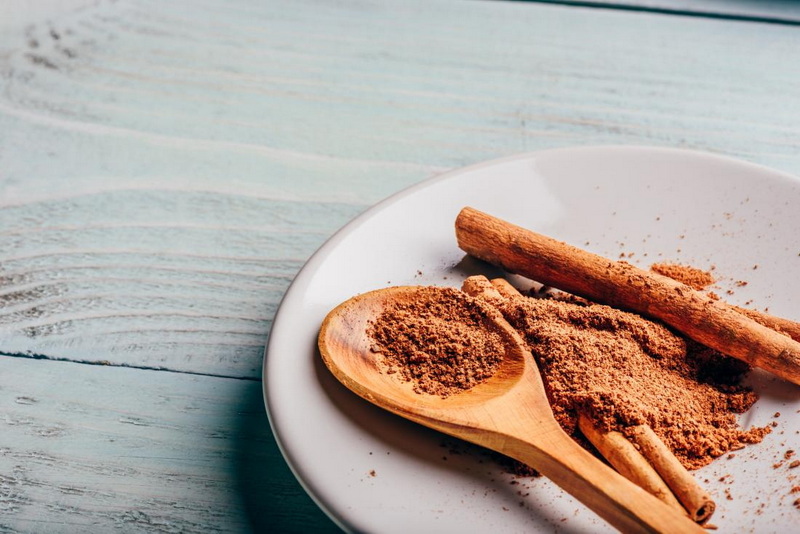Content Menu
● Introduction to Cinnamon and Diabetes
>> Cinnamon's Active Compounds
● Benefits of Cinnamon Bark Extract for Diabetics
>> 1. Blood Sugar Control
>> 2. Insulin Sensitivity
>> 3. Antioxidant and Anti-Inflammatory Effects
>> 4. Lipid Profile Improvement
>>> Effects of Cinnamon on Lipid
>> 5. Potential Weight Management Benefits
● Clinical Evidence and Studies
>> Study Example: Cinnamon Supplementation in Type 2 Diabetes
>> Meta-Analysis of Cinnamon Studies
>>> Summary of Meta-Analysis
● Potential Risks and Considerations
>> Interactions with Medications
● Conclusion
● FAQs
>> 1. What is the recommended dosage of cinnamon bark extract for diabetes management?
>> 2. Can cinnamon bark extract replace traditional diabetes medications?
>> 3. Are there any side effects associated with cinnamon bark extract?
>> 4. Does cinnamon bark extract work for both type 1 and type 2 diabetes?
>> 5. How does cinnamon bark extract compare to other natural supplements for diabetes?
● Citations:
Cinnamon, a spice commonly used in cooking, has been recognized for its potential health benefits, particularly in managing diabetes. Cinnamon bark extract, derived from the bark of cinnamon trees, contains compounds like cinnamaldehyde, which are believed to contribute to its therapeutic effects. This article explores the benefits of cinnamon bark extract for diabetics, including its impact on blood sugar levels, insulin sensitivity, and overall metabolic health.

Introduction to Cinnamon and Diabetes
Diabetes, especially type 2 diabetes, is a metabolic disorder characterized by high blood sugar levels due to insulin resistance or inadequate insulin production. Traditional treatments often involve lifestyle changes and medication to manage blood glucose levels. However, natural supplements like cinnamon bark extract have gained attention for their potential to support diabetes management.
Cinnamon's Active Compounds
Cinnamon contains several active compounds, but cinnamaldehyde is the most studied for its health benefits. This compound is responsible for cinnamon's distinct flavor and aroma and is believed to have anti-inflammatory, antioxidant, and insulin-sensitizing properties.
Benefits of Cinnamon Bark Extract for Diabetics
1. Blood Sugar Control
Cinnamon bark extract has been shown to help lower blood sugar levels by enhancing insulin sensitivity. This means that cells become more responsive to insulin, allowing glucose to enter cells more efficiently, thus reducing blood glucose levels.
2. Insulin Sensitivity
Insulin sensitivity is crucial for glucose metabolism. Cinnamon bark extract may improve insulin sensitivity by activating certain cellular pathways that enhance glucose uptake in muscles and adipose tissue.
3. Antioxidant and Anti-Inflammatory Effects
Cinnamon bark extract contains antioxidants that help reduce oxidative stress and inflammation, both of which are linked to diabetes complications. By mitigating these factors, cinnamon may protect against long-term damage to organs like the kidneys and heart.
4. Lipid Profile Improvement
Some studies suggest that cinnamon bark extract can also improve lipid profiles by reducing total cholesterol and LDL (bad) cholesterol levels, which are risk factors for cardiovascular diseases often associated with diabetes.
Effects of Cinnamon on Lipid
| Parameter | Before Cinnamon | After Cinnamon |
| Total Cholesterol | 200 mg/dL | 180 mg/dL |
| LDL Cholesterol | 120 mg/dL | 100 mg/dL |
| HDL Cholesterol | 40 mg/dL | 45 mg/dL |
5. Potential Weight Management Benefits
Cinnamon bark extract may also aid in weight management, which is crucial for individuals with diabetes. By improving insulin sensitivity and reducing inflammation, it can support a healthier metabolic profile.

Clinical Evidence and Studies
Numerous clinical trials have investigated the efficacy of cinnamon bark extract in managing diabetes. While results are sometimes conflicting due to variations in study design and dosage, many studies report positive effects on glycemic control and insulin sensitivity.
Study Example: Cinnamon Supplementation in Type 2 Diabetes
A study published in 2018 found that cinnamon supplementation improved anthropometric parameters, glycemic indices, and lipid profiles in patients with type 2 diabetes, particularly those with a higher baseline BMI.
Meta-Analysis of Cinnamon Studies
A meta-analysis of several studies on cinnamon supplementation in type 2 diabetes concluded that cinnamon significantly reduced fasting blood glucose levels and improved insulin sensitivity compared to placebo groups.
Summary of Meta-Analysis
| Outcome | Cinnamon Group | Placebo Group |
| Fasting Blood Glucose | -10.3 mg/dL | -2.5 mg/dL |
| Insulin Sensitivity | +15% | +5% |
Potential Risks and Considerations
While cinnamon bark extract is generally considered safe, high doses may cause gastrointestinal side effects. Additionally, individuals with diabetes should consult healthcare providers before adding any supplements to their regimen, especially if they are taking medications.
Interactions with Medications
Cinnamon may interact with certain medications, such as blood thinners, and could potentially lower blood sugar levels too much when combined with diabetes medications. Therefore, monitoring by a healthcare provider is essential.
Conclusion
Cinnamon bark extract offers promising benefits for diabetics, particularly in enhancing insulin sensitivity and lowering blood sugar levels. However, more research is needed to fully understand its effects and optimal dosing. As with any supplement, it should be used under medical supervision to ensure safety and efficacy.

FAQs
1. What is the recommended dosage of cinnamon bark extract for diabetes management?
The recommended dosage varies, but common ranges are between 1 to 6 grams per day. It's crucial to consult with a healthcare provider to determine the best dosage for individual needs.
2. Can cinnamon bark extract replace traditional diabetes medications?
No, cinnamon bark extract should not replace prescribed medications. It can be used as a complementary therapy under medical supervision.
3. Are there any side effects associated with cinnamon bark extract?
High doses may cause gastrointestinal side effects. Rarely, allergic reactions can occur. Monitoring by a healthcare provider is advised.
4. Does cinnamon bark extract work for both type 1 and type 2 diabetes?
Most studies focus on type 2 diabetes. While some research suggests benefits for type 1 diabetes, more evidence is needed to confirm its efficacy.
5. How does cinnamon bark extract compare to other natural supplements for diabetes?
Cinnamon bark extract is one of several natural supplements studied for diabetes management. Its effectiveness compared to others like berberine or chromium requires further research.
Citations:
[1] https://pubs.rsc.org/en/content/articlehtml/2021/fo/d1fo01935j
[2] https://pubmed.ncbi.nlm.nih.gov/29605574/
[3] https://pmc.ncbi.nlm.nih.gov/articles/PMC6425402/
[4] https://www.nature.com/articles/s41598-022-13421-9
[5] http://journals.sagepub.com/doi/10.1177/15593258231200527
[6] https://pmc.ncbi.nlm.nih.gov/articles/PMC5085873/
[7] https://www.healthline.com/nutrition/cinnamon-and-diabetes
[8] https://academic.oup.com/jes/article/4/11/bvaa094/5870882
[9] https://pmc.ncbi.nlm.nih.gov/articles/PMC3767714/
[10] https://pmc.ncbi.nlm.nih.gov/articles/PMC2901047/






























